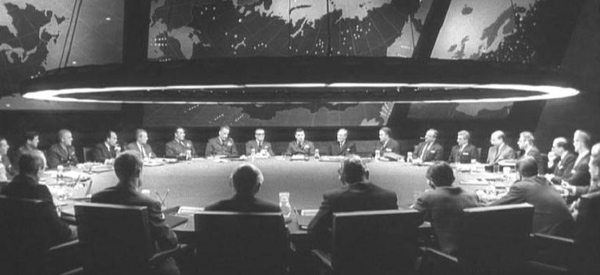Systems Thinkpiece

Luminaries in the technology industry love to trumpet systems thinking. A “systems thinker” is one who possesses the ability to reason holistically about the relationships between independent components of a system. This notion is recursive in the sense that each component may itself be a system composed of interconnected parts.
In practice, companies tout systems thinking as a means towards the nebulous ideal of “innovation”. We like to hire “systems thinkers” because our companies are complex, special organizations that need to be properly cared for and fed by smart people. But really, I think that true systems thinking manifests elsewhere in a corporate setting. An enlightened company thinks of ways to minimize their adverse impact on customers’ lives and society as a whole. Such a company may disrupt their competition, but leave society intact, if not improved.
Two examples, admittedly focusing on the negative because it’s easier to call attention to:
- The fast food industry is bad at systems thinking. Their success is inversely correlated with the physical health of their customers.
- The financial industry has a centuries-long track record of being bad at systems thinking. Time and time again, recessions are caused by the over-exploitation of markets and people. In terms of systems, expressions of laissez faire capitalism show a contemptible disregard for the consequences of exploitative actions on powerless people.
Tech
How does the technology industry fair when viewed through this lens? To frame the current moment in history, I think technologists’ collective vision of the future has come into stark contrast with reality. Look at basically any peppy video advertisement from a startup and you’ll see a world inhabited solely by affluent, tech-savvy people. The primary motivators when these people make purchasing decisions are the degree to which a product or service can make them feel “connected” and maximally productive.
This vision, one in which Maslow’s hierarchy itself has been disrupted, isn’t a vision that represents the bulk of humanity. In its dominant guise driven by venture capitalists, I don’t think Silicon Valley is as good at thinking about systems as it thinks it is.
Specifically, the current iteration of the tech industry fails to take into account and plan for the societal impact of its offerings. We want a driverless future, but it’s not our job to think about how we’ll maintain the livelihood and dignity of taxi-, truck-, and bus-drivers. We want an open and universal communications network, but refuse to acknowledge our consequent role in defending the truth and policing hate speech. We want to institute a sharing/gig economy, but give zero thought into how this would impact the health care system or how people find time to raise children amid a workweek full of discontinuous tasks carried out for rich people.
Closing
When the financial industry’s unchecked expansion into predatory lending cratered the global economy, we were up in arms, calling for heads to roll. Now, by giving a megaphone populists, social media has helped put an authoritarian administration in the White House and the specter of white supremacy back into the mainstream. What is to be done when the leadership at Facebook and Twitter fail to even acknowledge their platforms’ inadvertent role in these developments?*
We can’t build an equitable future when the powers that drive the narrative (namely, prominent executives and VCs) fail to recognize technology’s adverse effects. When will Silicon Valley have its Oppenheimer moment?
Thanks to Marc Hedlund for reading and providing feedback on drafts of this essay.
* I realize that this is reductive. Also, the massive outpouring of activism since the election would be impossible without social media, so the megaphone goes both ways.